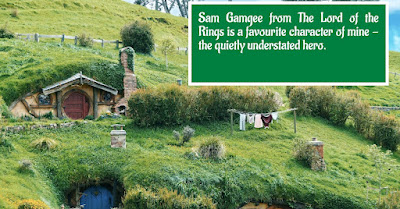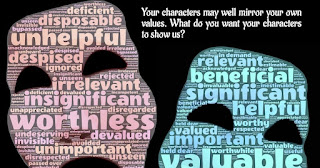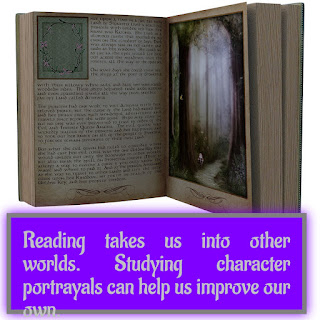Learning From Our Favourite Characters by Allison Symes
Image Credit: Images created in Book Brush using Pixabay photos
We all have favourite characters.
I love Sam Gamgee from The Lord of The Rings. He’s a quietly understated hero. I love characters like that.
I love Elizabeth Bennet from Pride and Prejudice for not caving into expectations when she rejected the odious Mr Collins. It would’ve been much easier for her to just do what her family wanted.
It’s hard to say who my overall favourite character is but a strong contender is Sam Vimes from Terry Pratchett’s Discworld series.
Over several books, Sam Vimes develops from being an alcoholic loser to becoming a brave, honourable man. Not perfect by any means but there is a decent man here and it is a joy to see this played out.
If you want to examine great characterisation, he is a fabulous one to follow. Start with Guards! Guards!and work your way through. Have fun!
What can we learn from our favourite characters?
Firstly, we can look at how the authors portrayed them and work out why they did things this way. Sam Vimes’ transformation couldn’t be done over one or two books. Even for a fantasy series, you still need realistic characters a reader can get behind.
Secondly, look at what you like about the character concerned. They’re likely to reflect at least some of your values. Now look at how the author has done that without being preachy.
Thirdly, look at the mistakes your characters make and how they learn from them. A character that doesn’t learn is stuck. Nobody likes a static character. The character must move on so how do they do that? What do they do to atone?
The nice thing about writing is you get to read more too and studying how characters you love were written is a useful tool. You can learn things from characters you don’t like too. At least you’ll know what you don’t want your characters to be!
You’re learning to read with a critical eye here which is a useful skill. It will help you when you go over your work with that same critical eye. It is hard to be objective about your own creations but it is necessary. As well as knowing what I like and dislike about character portrayals, which I can apply to my stories, reading with a critical eye means I am asking myself what will my reader get out of this?
The focus has to be on reaching out to your readers. It also helps you spot and cut out waffle.






Fantastic post Alison, Characters must be believable and I question. Would they really do that?
ReplyDeleteThank you (from Allison Symes)
DeleteGreat Post Alison. Resonates with a lot of what I've been learning in the fiction module of my MA.
ReplyDeleteGood to hear, Liz, and good luck with the MA, Allison Symes.
DeleteLovely post! Thanks for sharing this Alison. Very useful suggestions!!
ReplyDeleteMany thanks, Sophia (from Allison Symes)
DeleteI love your scholarly dissection of our favourite characters. It did make me think about why I love Elizabeth Bennet so much
ReplyDelete